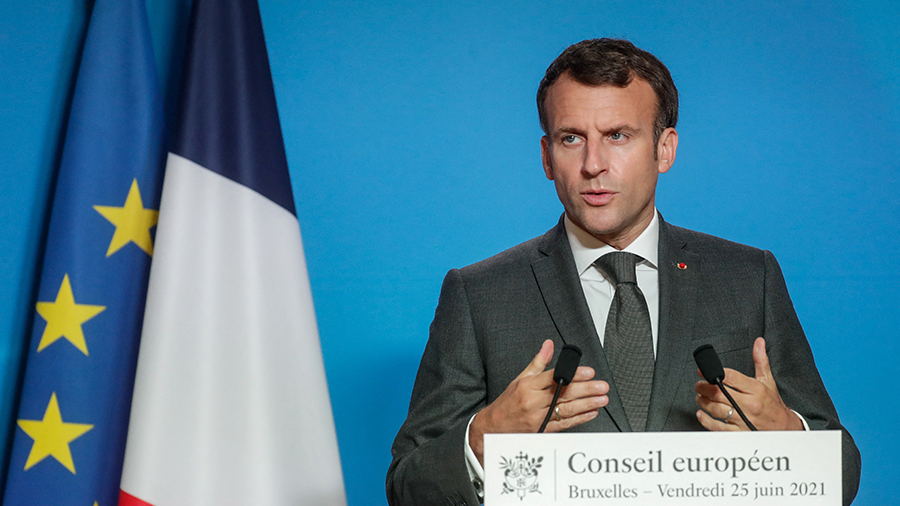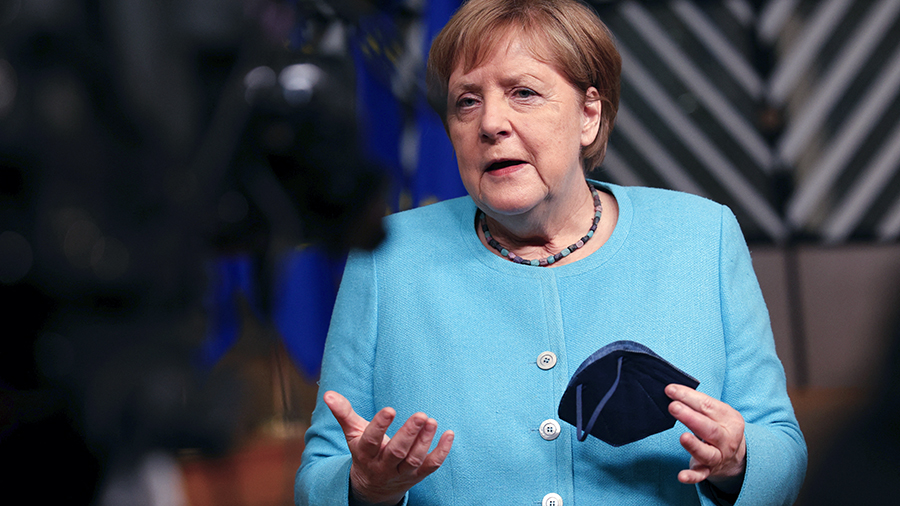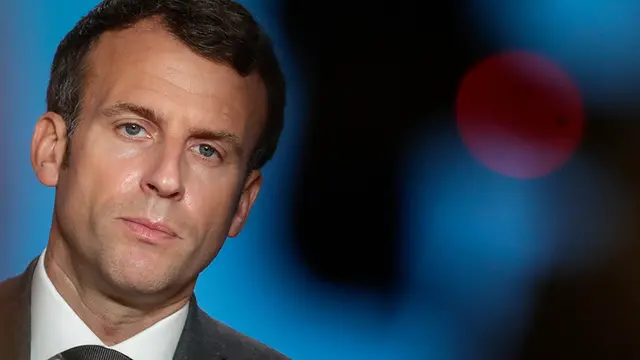The strong refusal to resume talks with Russia pronounced on Thursday at the European Parliament by several EU member states is "no drama at all," said France's President Emmanuel Macron, who together with Germany's Chancellor Angela Merkel had recently suggested the bloc restarts summits with Russia's President Vladimir Putin.

Macron told the press that 'progress in a good direction on the Russia question' has been made during the EU summit. /Stephanie Lecocq/POOL/AFP
The French-German proposal, inspired by the recent successful meeting between Putin and U.S. President Joe Biden in Geneva, has been opposed by countries such as Poland and the three Baltic states, with Lithuania's President Gitanas Nauseda saying the idea was like "trying to engage the bear to keep a pot of honey safe."
Instead, EU member states have suggested the bloc toughens its stance and considers further economic sanctions.
READ MORE:
Drone footage of Belgian storm damage
Meet the frog whisperer
10 stories from China this week
Talks between Brussels and Moscow have been frozen since Russia annexed Crimea from Ukraine in 2014, an event that now constitutes a long-standing reason for tension between the two parties.
On Wednesday,
an incident involving the alleged trespassing of a UK vessel into Russian waters in the Black Sea
off the coast of Crimea, contested by British authorities, brought to public attention how explosive the situation in the disputed area still is.
Both Macron and Merkel downplayed the rejection of their plan. "Personally I would have liked to have taken a bolder step here," Merkel told reporters on Friday morning. "But it's also good as it is, and we will continue to work on this."

The two-day summit was likely the last one Merkel will be attending as Germany's chancellor. /Olivier Matthys/POOL/AFP
Similarly, Macron said the lack of consensus for a EU-Russia summit was "no tragedy" and that he does not "need an EU summit to see Vladimir Putin."
But Macron also argued on Friday that the strategy the EU has been following in reaction to the aggressive expansion of Russia towards its Western neighbors, including sanctions, has been "ineffective" and that "a sovereign Europe should be able to defend its interests" by speaking directly to Moscow.
"A sovereign Europe should be able to defend its interests" by speaking directly to Putin, he told reporters.
The plan was dropped despite receiving the support of Austria's Chancellor Sebastian Kurz and Italy's Prime Minister Mario Draghi.
The Kremlin said it "regretted" the decision of the EU member states and said that "President Putin was and remains interested in establishing working relations between Moscow and Brussels," despite the hostility of what it calls "anti-Russia member states."
During the same summit, EU member states also discussed how the bloc should react to Hungary's new discriminatory law banning LGBT content from educational and entertainment material for those under the age of 18.
The bloc showed a united front on the issue (with the exclusion of Poland), with Netherlands Prime Minister Mark Rutte going as far as saying: "For me, Hungary has no place in the EU anymore." But European Commission President Ursula von der Leyen rejected the idea that Hungary should leave the bloc.
Cover image: Stephanie Lecocq/POOL/AFP
Source(s): AFP ,Reuters
 简体中文
简体中文





